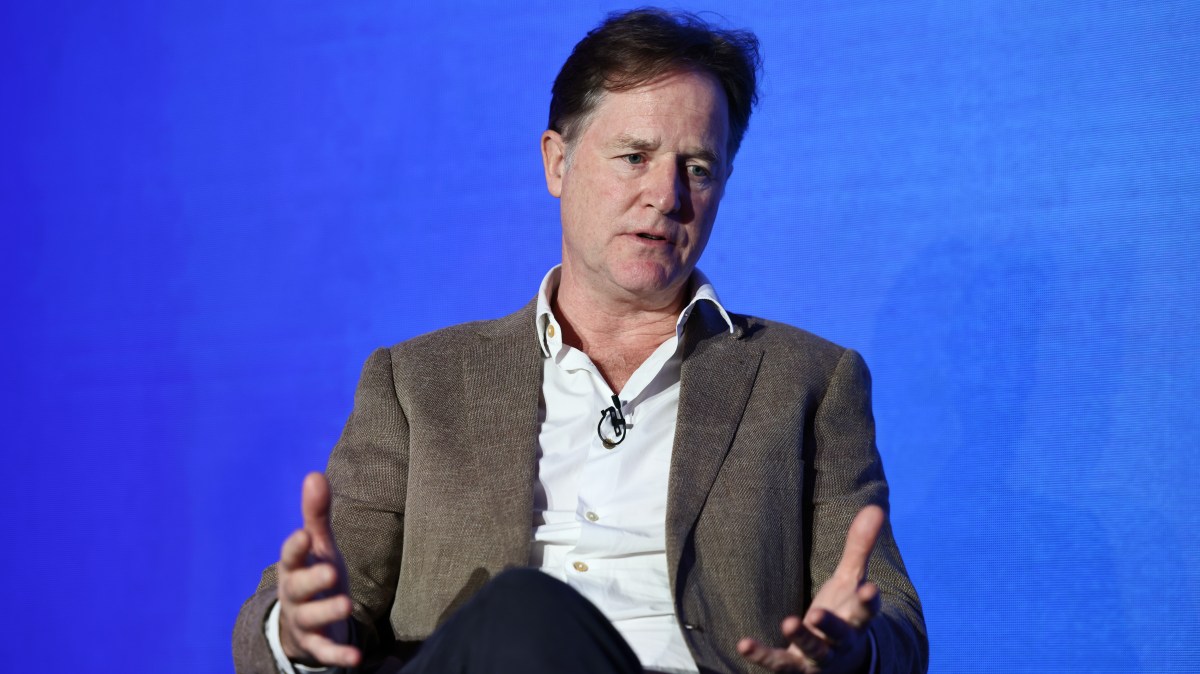Sir Nick Clegg has warned that many of the valuations in the AI industry are “crackers” as the sector grapples with doubts over the returns it can generate on the tens of billions invested in machine learning technologies.
The former deputy prime minister and Meta executive told delegates at The Times Tech Summit he had not seen many business models based on AI that would be able to make a return on their investment and could be “very exposed in market correction”.
Clegg’s comments come after he stepped down from his role as president for global affairs at Meta, formerly known as Facebook, this year, having joined the company in 2018.
• Darktrace boss: I was deepfaked and I couldn’t tell difference
He said: “I think there’s certainly a correction in terms of valuations. These valuations do, for all the reasons that people have commented on endlessly, do seem pretty crackers.
“I don’t see any business model yet, even of the leading AI hyperscalers that can recoup that capital expenditure. But even if there is a correction, and there will be a shake-out, some of the AI labs that don’t have a particularly good business model… will be very exposed in a market correction.”
Clegg’s comments come amid concerns of a bubble in the AI sector after the IMF’s chief economist drew parallels to the dotcom bubble of the early 2000s, in which $5 trillion was wiped from the market, and the Bank of England warned of a “sudden correction” in valuations.
The former deputy prime minister also criticised the UK’s “level of dependency” on technology from the US, stating that the country is in a “perilous state” given its lack of homegrown infrastructure and assets.
• News Corp boss warns AI companies not spending enough on content
“I think it’s pretty difficult to assert anything other than the fact that we are a vassal state … of American technology,” he said.
“Do you think the rupture which clearly has taken place across the Atlantic between the US and Europe and the UK under Trump two, is that a passing squall? Is that just something that just is associated with the eccentricities of Donald Trump? Or is it, as I believe it to be, something much more profound, which is a permanent change.
“We are wholly dependent on every level of the stack for technology from a country where the geostrategic interests are no longer aligned in the same way they have been for the last 30 years.”
